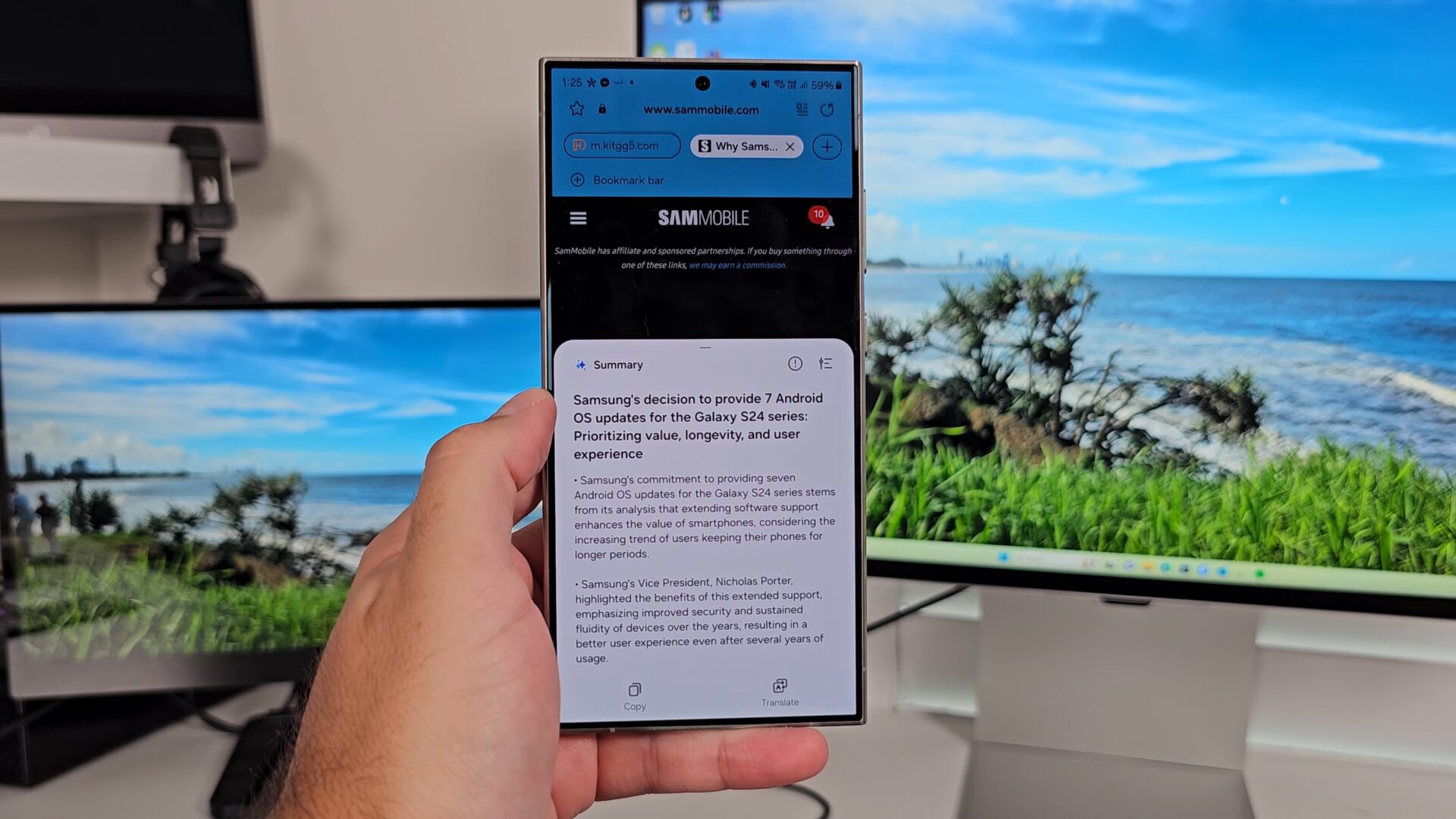Samsung saw considerable potential in Galaxy AI's ability to sell more devices, that's why it spent the better part of the Galaxy S24 Unpacked event talking about all of the new AI features, and only mentioned the new hardware upgrades in passing towards the end of the event. There's evidence to suggest that Galaxy AI has indeed helped Samsung sell more Galaxy S24 units. The company has followed that up nicely with the new foldable phones that have also brought some new features as part of its Galaxy AI suite.
The company was also quick to release many features to compatible older flagships and this meant that within weeks of Galaxy AI's launch, it was running on more than 100 million devices across the globe. The Galaxy Z Fold 6 and Galaxy Z Flip 6's launch has also helped, and with further expansion of support, Samsung is now aiming to hit 200 million devices for Galaxy AI before the end of the year. That's a monumental achievement when you think about the fact that it has been done in less than a year.
Galaxy AI is currently limited to Samsung's flagship phones only, current and some previous models. There are many lineups within Samsung's own Galaxy family that are excluded, particularly the premium mid-range phones, and therein lies the company's trump card for absolute domination of this mass market segment, which has insane turnover in some of Samsung's most important markets.
The mid-range phone segment is extremely competitive. It has way too many competitors, even those that don't compete against Samsung in the high-end market, but aggressively price their mid-range and budget offerings to steal some of Samsung's thunder in lucrative emerging markets. Samsung has had an uphill battle in this market but the company has done well so far to retain its market share in some leading markets like India, despite all competition from Chinese and local manufacturers, partly by relying on its stronger brand equity, its retail and customer service network without indulging in an all-out price war with its rivals.
It's a tough balancing act. Samsung has to manage the expectations of the customers who require a product that's great value for money while also ensuring that it's making a decent enough margin on each unit sold. Therefore, the company has to come up with crafty ways to position its devices as the better options in this competitive market. “Awesome screen, awesome camera, long-lasting battery life” has long been the jingle with which Samsung has attracted customers to the Galaxy A series, succinctly highlighting that its Galaxy A series phones are “awesome” in the three core areas that mid-range phone buyers want the most value for money.
However, as we've said before, specs aren't sexy anymore and with things hitting a saturation point for screen, camera, and battery, the trump card Samsung's now looking for isn't going to be found in a better screen or a larger battery, it's going to be found in something that's caught everybody's attention this past year, and that's AI.
Everyone and their dog has heard about artificial intelligence by now and even if they don't have any real use case for it, they've probably tinkered around with one of the many AI tools available these days. There's a widespread curiosity now to see how AI develops and where it takes us. Smartphone buyers are also intrigued to see how it's implemented in mobile devices and what different approaches the major companies take. We've seen Samsung's Galaxy AI, Apple's Apple Intelligence, and Google's efforts as well.
Buyers in the mid-range segment are aware what new AI features the flagship phones have and they would certainly like to have a taste of that on their devices. Ultimately, now when they're comparing between two devices to decide which to buy, they'll also look at the availability of AI features in addition to the usual specs. There aren't many in the mid-range segment that are providing AI features on such devices, and some manufacturers don't really have the capability to build them beyond taking off-the-shelf AI solutions and slapping their own brand on them.
This is where Samsung will shine. The company has invested significantly in its AI teams and they're empowered to come up with new solutions. Samsung's close partnership with Google has also resulted in better integration of Google's AI services on Galaxy devices, and that's a crucial partnership that many of its rivals in the mid-range segment don't have. So Samsung can fully exploit its position here to dominate the mass-market devices with Galaxy AI, but it's taking it slow.
We've only just see the first indication of Samsung thinking about mobile AI beyond flagships. It announced the launch of Circle to Search for select Galaxy A series models and the Galaxy Tab S9 FE. Core Galaxy AI features are still missing, though, and it's tough to say when they will arrive. Perhaps the company will make us wait for another year before it truly expands Galaxy AI to the mid-range lineup.
Samsung likely wants to keep Galaxy AI limited to flagships right now as that's where the money is, and it's one of the reasons it hopes people pick up Galaxy flagships. It's only when Samsung feels that Galaxy AI can't move the needle much more beyond that for sales then perhaps it may think about a full-fledged Galaxy AI launch for mid-range devices, at least for premium mid-range models like the Galaxy A5x, for example.
When that does happen, and assuming things stay as they are and no other manufacturer is focusing as much on mobile AI for mid-range phones, Samsung's offerings will stand in a league of their own. Not only that, they will also allow for better integration with Samsung's own ecosystem which is fast becoming AI-first and the company is particularly prioritizing. If Samsung believe that the future of mobile is AI then it certainly can't be contained to flagship only, and I have a feeling that it won't be, we just have to wait for a little bit.







